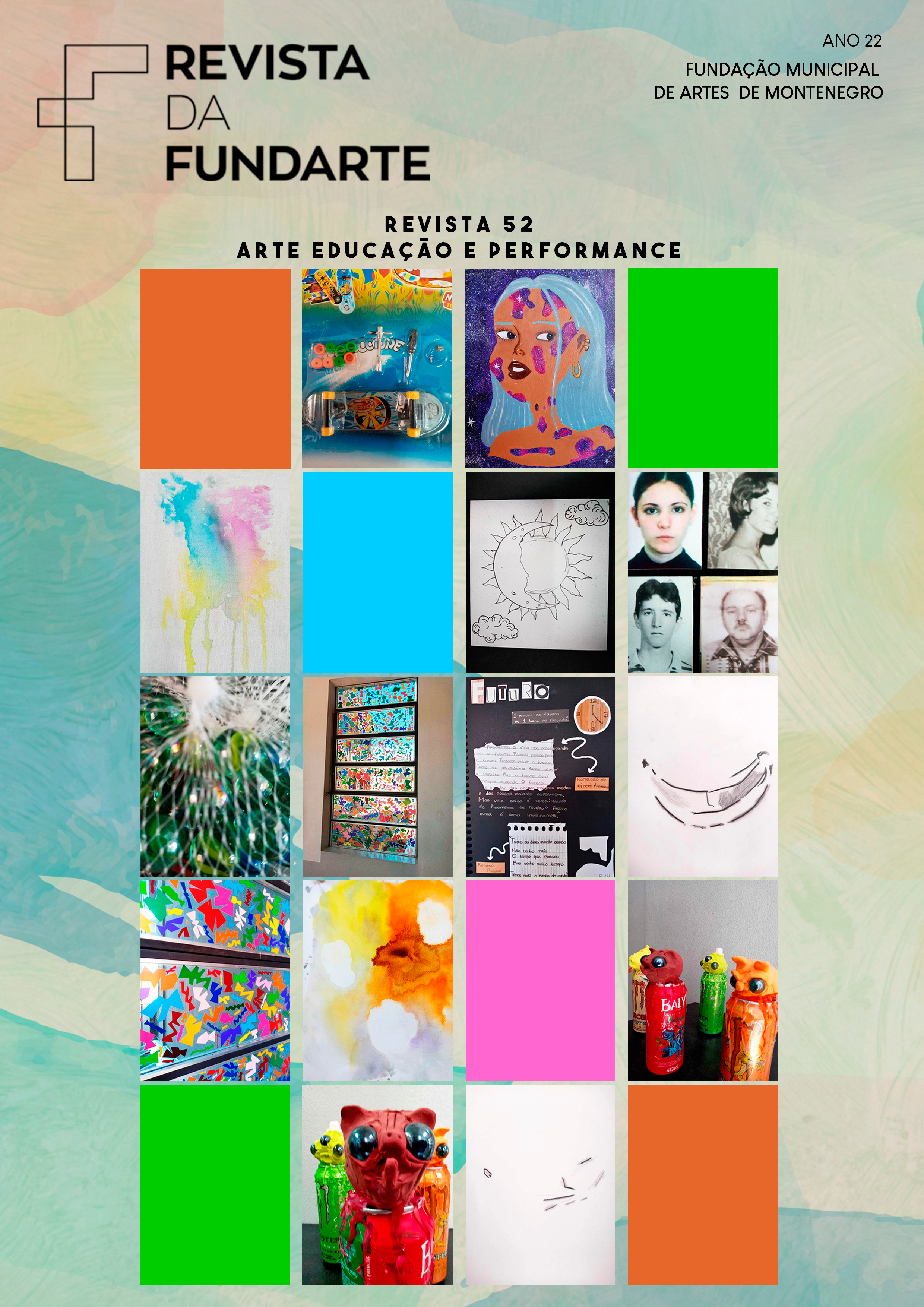COMO TRABALHAR QUESTÕES DE DIVERSIDADE CULTURAL ATRAVÉS DA ARTE?
DOI:
https://doi.org/10.19179/rdf.v52i52.1158Palavras-chave:
Teatro, Arte, Cultura e DiversidadeResumo
Resumo: Este trabalho elucidou de uma observação da atual realidade social brasileira e através de uma pesquisa bibliográfica foi possível estruturar a pesquisa através da seguinte tríade: Arte, Cultura e Diversidade. Este trabalho foi desenvolvido juntamente com a formação do curso de aperfeiçoamento UNIAFRO - Política de Promoção da Igualdade Racial na Escola, realizada em 2014 pela Universidade Federal do Rio Grande do Sul (UFRGS), que visa promover a cultura afrodescendente nas escolas, ressaltando a sua história e resgatando as suas origens. Com isso, este trabalho tem o objetivo de promover a importância da cultura negra através de uma dinâmica vinda do teatro. Toda a atividade, assim como o seu plano de aula, foi pensada de forma a contemplar as histórias desta cultura. Por isso, este trabalho desenvolve a diversidade cultural através da dinâmica de fantoches, com o recorte de valorização da cultura afrodescendente. Para esta pesquisa são consultados os seguintes autores: Vasconcellos (2002), Almeida (2010), Sacristán (2002), Siebert e Chiarelli (2012), Silva e Urbaneski (2012), Ferraz (2010) e Ferraz e Fusari (2010).
Palavras chave: Teatro; Arte; Cultura e Diversidade.
Downloads
Referências
ALDERFER, C.P.; SMITH, K. K. Studying intergroup relations embedded organizations. Administrative Science Quarterly, v. 27, p. 35-65, 1982.
CHACRA, S . Nature and sense of theatrical improvisation. São Paulo: Perspective, 1991.
CELESTINO DE ALMEIDA, Maria Regina( The Indians in the history of Brazil. Rio de Janeiro: FGV Publishing House, 2010.
DIAS, Adelaide A. The school as a space for socializing culture in human rights. Available from: < www.redhbrasil.net/documentos/biblioteca_on_
line/modulo4/mod_4_Adelaide.pdf >. Access: 24 Jul. 2010.
FERRAZ, Maria Heloísa C. de, FURASI, Maria F. de Rezende and Art in School Education. São Paulo: unit 1, p.46, 2010.
GONÇALVES, Jean Carlos; BREDA, Michela Rejane. Performing Arts. Santa Catarina: Publisher- Uniasselvi- Indaial, 2012.
MENUHIN, Y.; DAVIS, C. W. The music of man. São Paulo: M. Fontes, 1990.
Redida, Maria. Uniafro Course - UFRGS. Available in: <https://moodle.ufrgs.br/course/view.php?id=27061> Accessed on 10 Oct 2014.
_________________. Uniafro Course - UFRGS. Available in: < https://moodle.ufrgs.br/mod/resource/view.php?id=689062 > Access on 10 Oct 2014.
_________________. Uniafro Course - UFRGS. Available in: <https://moodle.ufrgs.br/mod/resource/view.php?id=631921> Access on 10 Oct 2014.
_________________. Uniafro Course - UFRGS. Available in: <https://moodle.ufrgs.br/mod/resource/view.php?id=670322> Accessed on 10 Oct 2014.
SACRISTÁN, Jose G. The construction of the discourse on diversity and its practices. In: ALCUDIA, Rosa et al. Attention to diversity. Porto Alegre: Artmed, 2002.
SANTOS, José Luiz dos. What is culture. São Paulo: Brasiliense, 1983.
SIEBERT, Emanuele Cristina, CHIARELLI, Ligia Karina Meneghetti. Brazilian Popular Culture. Santa Catarina: Publisher- Uniasselvi- Indaial, 2012.
SILVA, Everaldo da. URBANESKI, Vilmar. General Sociology and Education. Santa Catarina: Publisher- Uniasselvi- Indaial Group, unit 1, p.46, 2012.
THOMAS Jr., R. R. Beyond race and gender: unleashing the power of your total work force by managing diversity. New York: AMACON, 1991
VASCONCELLOS, Celso dos Santos. Planning: teaching project - learning and pedagogical political project. 10 ed. São Paulo: Libertad, 2012.
VIGOTSKI, Lev Semenovich. Imagination and Art in Childhood. Translation of Voobrajenie i Tvorchestvo by Miguel Serras Pereira. Lisbon: Relógio d ́Água Editores, 2009.
Downloads
Publicado
Edição
Seção
Licença
Copyright (c) 2022 Ronaldo Josué Faller, Angela Maria Faller Orth

Este trabalho está licenciado sob uma licença Creative Commons Attribution-NonCommercial-NoDerivatives 4.0 International License.
Ao submeter um artigo à REVISTA da FUNDARTE e tê-lo aprovado, os autores mantem os direitos de autoria e concordam em ceder, sem remuneração, os seguintes direitos autorais à REVISTA da FUNDARTE : os direitos de primeira publicação e permissão para que esta revista redistribua esse artigo e seus dados aos serviços de indexação e referências que seus editores julguem usados.
Este trabalho está licenciado sob uma Licença Creative Commons Não Comercial 4.0 Internacional.
![]()



